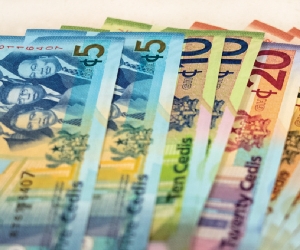Ghana’s inflation rate climbed to a four-month high in March as a slump in the currency pushed up the prices of imports such as fuel and food.
Annual inflation accelerated to 25.8% from 23.2% in February, Government Statistician Samuel Kobina Annim said in the capital, Accra, on Wednesday. The median of five economists’ estimates in a Bloomberg survey was for price pressures to quicken to 26.4%.
The cedi has depreciated around 11% this year against the dollar, making it the fourth worst-performing currency in the world of those tracked by Bloomberg.
The weakness is being stoked by a resurgent dollar as a resilient American economy conspires to keep the greenback strong by pushing back expectations for the start of US interest-rate cuts. A decline in cocoa production due to adverse weather conditions and debt-restructuring delays are also weighing on sentiment.
The world’s second-largest cocoa producer missed a self-imposed deadline of end-March to finalize a debt revamp deal with its eurobond holders after rejecting demands to incorporate a so-called value-recovery instrument in the restructuring of $13 billion of obligations. This mechanism will result in higher interest payments when economic growth accelerates faster than targets set by the International Monetary Fund, which granted Ghana a $3 billion bailout.
“The weakening of the cedi is likely to slow the descent in inflation” and “keep the Bank of Ghana apprehensive to reduce the policy rate further,” said Mark Bohlund a senior credit research analyst at REDD Intelligence ahead of the release.
Governor Ernest Addison said last month after the monetary policy committee kept the key interest rate unchanged at 29% that “risks to inflation are slightly on the upside and will require close monitoring.”
Food inflation accelerated to 29.6% from 27% in February and non-food price growth was 22.6% in March, compared with 20% a month earlier.
The MPC will give its next rate decision on May 27.
Business News of Wednesday, 10 April 2024
Source: bloomberg.com













